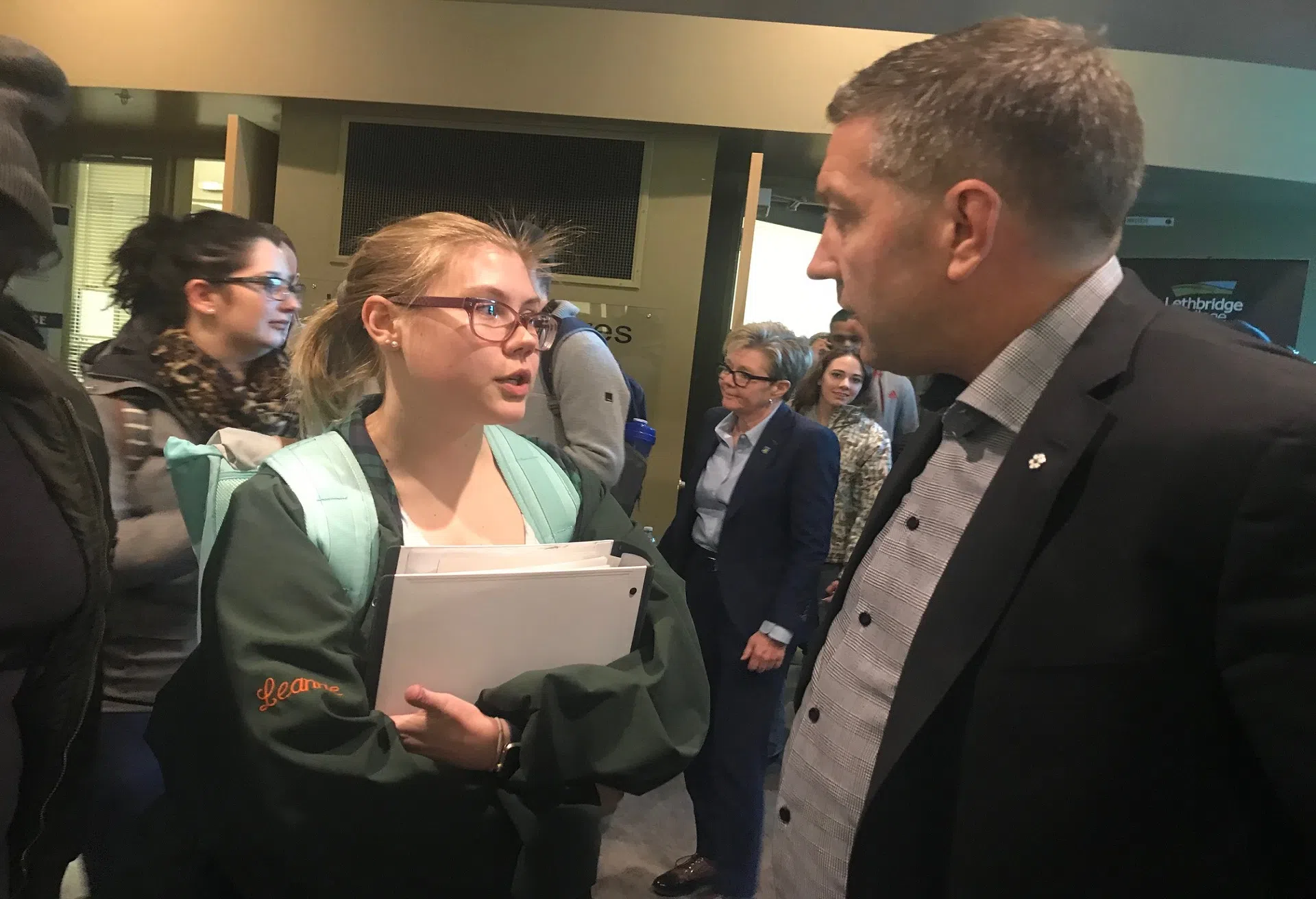
Former NHLer Sheldon Kennedy brings documentary “Swift Current” to Lethbridge College
LETHBRIDGE – “We have to be able to discuss these cases and show up around the table.”
As a former NHL player and WHL star, Sheldon Kennedy lived a destructive lifestyle. He was addicted to alcohol and cocaine and took huge risks with his life on and off the ice, according to his documentary “Swift Current.” His actions impacted his health, his career, and his family life.
The documentary, directed by Joshua Rofe, was screened by students and faculty in the Centre for Justice and Human Services Thursday afternoon.
“I was portrayed as this out of control, drunk kid,” Kennedy explains in the documentary. “There was something wrong with me. I had to protect a secret.”


